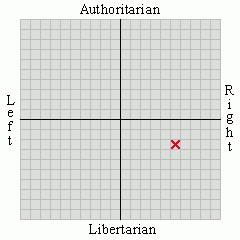A longtime friend on the school board of one of the largest school systems in America did something that few public servants are willing to do. He took versions of his state’s high-stakes standardized math and reading tests for 10th graders, and said he’d make his scores public.Perhaps a serious criticism of standardized tests impends. Or not. Later we read this...
By any reasonable measure, my friend is a success. His now-grown kids are well-educated. He has a big house in a good part of town. Paid-for condo in the Caribbean. Influential friends. Lots of frequent flyer miles. Enough time of his own to give serious attention to his school board responsibilities. The margins of his electoral wins and his good relationships with administrators and teachers testify to his openness to dialogue and willingness to listen.
...
“I won’t beat around the bush,” he wrote in an email. “The math section had 60 questions. I knew the answers to none of them, but managed to guess ten out of the 60 correctly. On the reading test, I got 62% . In our system, that’s a “D”, and would get me a mandatory assignment to a double block of reading instruction.
He continued, “It seems to me something is seriously wrong. I have a bachelor of science degree, two masters degrees, and 15 credit hours toward a doctorate."
The man in question is Rick Roach, who is in his fourth four-year term representing District 3 on the Board of Education in Orange County, Fl., a public school system with 180,000 students. Roach took a version of the Florida Comprehensive Assessment Test, commonly known as the FCAT, earlier this year.Follow the link and the success and Math test performance are explained:...
Roach was a teacher, counselor and coach in Orange County for 14 years. For the last 25 years he has trained over 18,000 educators in classroom management and course delivery skills in six eastern states.That explains the "big house in a good part of town", the "paid-for condo in the Caribbean" and the "influential friends". While this:...
He holds a bachelor of science degree in education and master of arts degree in education and educational psychology...explains the dismal 10th grade Math performance.
The volunteer victim makes some decent points:...
“Many of the kids we label as poor readers are probably pretty good readers. Here’s why."Accountability" is a matter of feedback. We deal with a system that responds to political feedback and resists market feedback mechanisms. System insiders dominate the political feedback systems, which explains "the margins of his electoral wins and his good relationships with administrators and teachers testify to his openness to dialogue and willingness to listen". Ten-to-one he gets the Florida teachers' union endorsement. Still, there is a point here. Why do schools require their particular course material? The State (government, generally) cannot require attendance at school without a definition of "school". The State cannot subsidize education without a definition of "education". These definitions then bind students, parents, real classroom teachers, and taxpayers.
“On the FCAT, they are reading material they didn’t choose. They are given four possible answers and three out of the four are pretty good. One is the best answer but kids don’t get points for only a pretty good answer. They get zero points, the same for the absolute wrong answer. And then they are given an arbitrary time limit. Those are a number of reasons that I think the test has to be suspect.”
*The math section, he said, tests information that most people don’t need when they get out of school.
“There’s a concept called reverse design that is critical,” he said. “We are violating that with our test. Instead of connecting what we learn in school with being successful in the real world, we are doing it in reverse. We are testing first and then kids go into the real world. Whether the information they have learned is important or not becomes secondary. If you really did a study on what math most kids need, I guarantee you could probably dump about 80 percent of math scores and leave high-level math for the kids who want it and will need it.
*His final conclusion on the FCAT:
“They are defending a test that has no accountability.”
Consider again "IIf you really did a study on what math most kids need, I guarantee you could probably dump about 80 percent of math scores and leave high-level math for the kids who want it and will need it."
Seems to me if you really did a study on what schooling most kids need, you could probably dump about 80 percent of schooling and leave everything beyond fifth grade reading and Alg I for the kids who want it and will need it.
Update: The Headmistress over at the Common Room provided this link to a version of the Florida Math test. If this test reflects the 10th grade curriculum, then that curriculum is "a mile wide and an inch deep".
